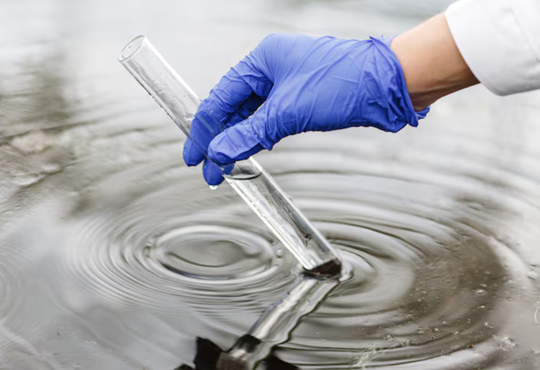IIT-Bombay Researchers Develop Solar-Powered Evaporators for Water Desalination
 Scientists from the Indian Institute of Technology (IIT)-Bombay have created a novel material that can aid in water desalination and contribute to solving the escalating freshwater crisis globally, according to PTI.
Scientists from the Indian Institute of Technology (IIT)-Bombay have created a novel material that can aid in water desalination and contribute to solving the escalating freshwater crisis globally, according to PTI.
The institute announced on Wednesday that Professor Swatantra Pratap Singh and Aiswarya CL from IIT-Bombay have created a material known as the Dual-Sided Superhydrophobic Laser-Induced Graphene (DSLIG) evaporator.
The device resolves various limitations of previous evaporators and holds promise for widespread use. According to PTI, the institute reported that this evaporator can be warmed by solar energy as well as by electricity, referred to as Joule heating.
The shortage of freshwater, a major problem in many regions globally, is anticipated to worsen in the years ahead.
Although water is plentiful on the Earth's surface, only approximately 3 percent is freshwater, and within that, less than 0.05 percent is readily accessible; desalinating seawater and brackish water is considered one solution to tackle this issue.
Nonetheless, brine – a concentrated solution of salt – generated from desalination presents a significant challenge in landlocked areas, and industries are seeking zero liquid discharge solutions.
Integrating solar and electric heating safeguards the material against variations."Fluctuations in solar radiation cause temperature variations on the evaporator's surface. On cloudy days, the performance of the interfacial system is halted due to the lack of solar energy. Additionally, the variation in solar radiation during the day affects the evaporation process, with evaporation rates typically peaking around 2 pm when solar intensity is highest," Professor Singh explained, according to PTI.

.jpg)